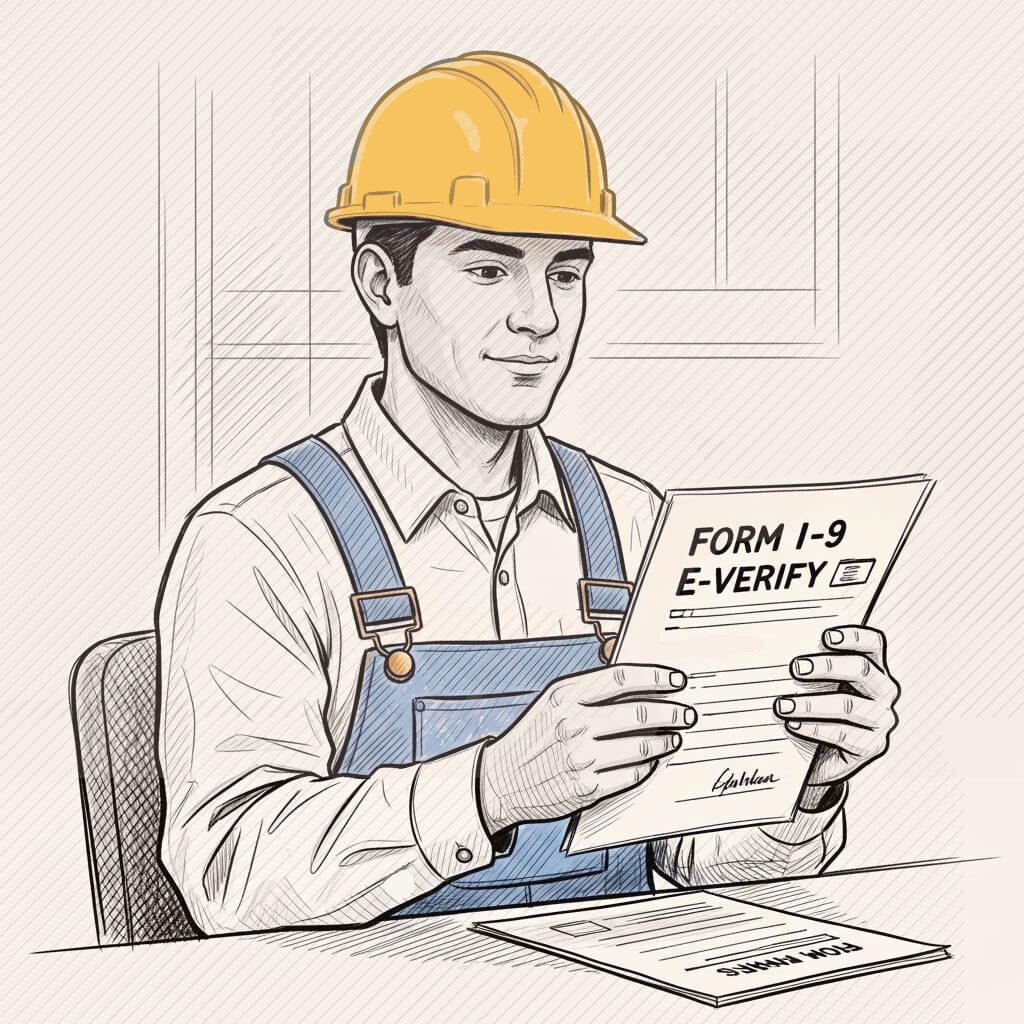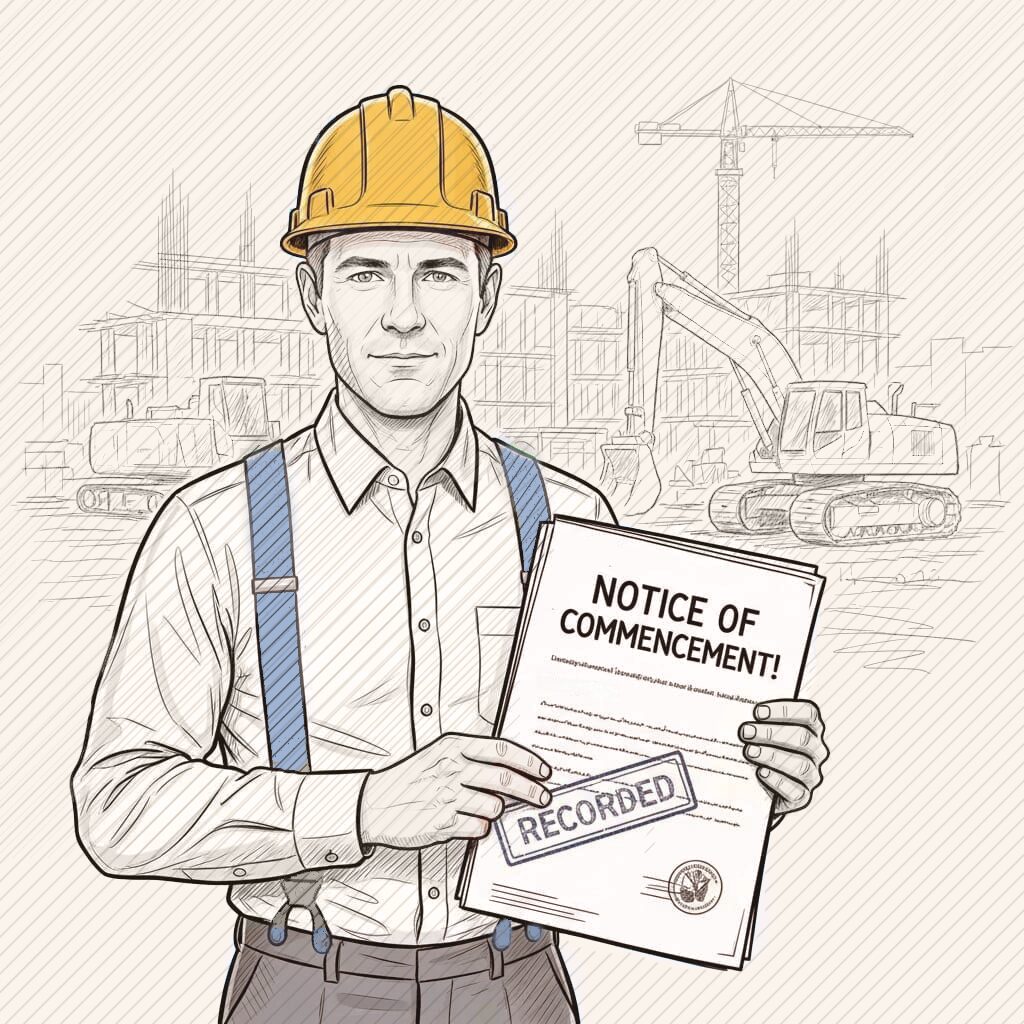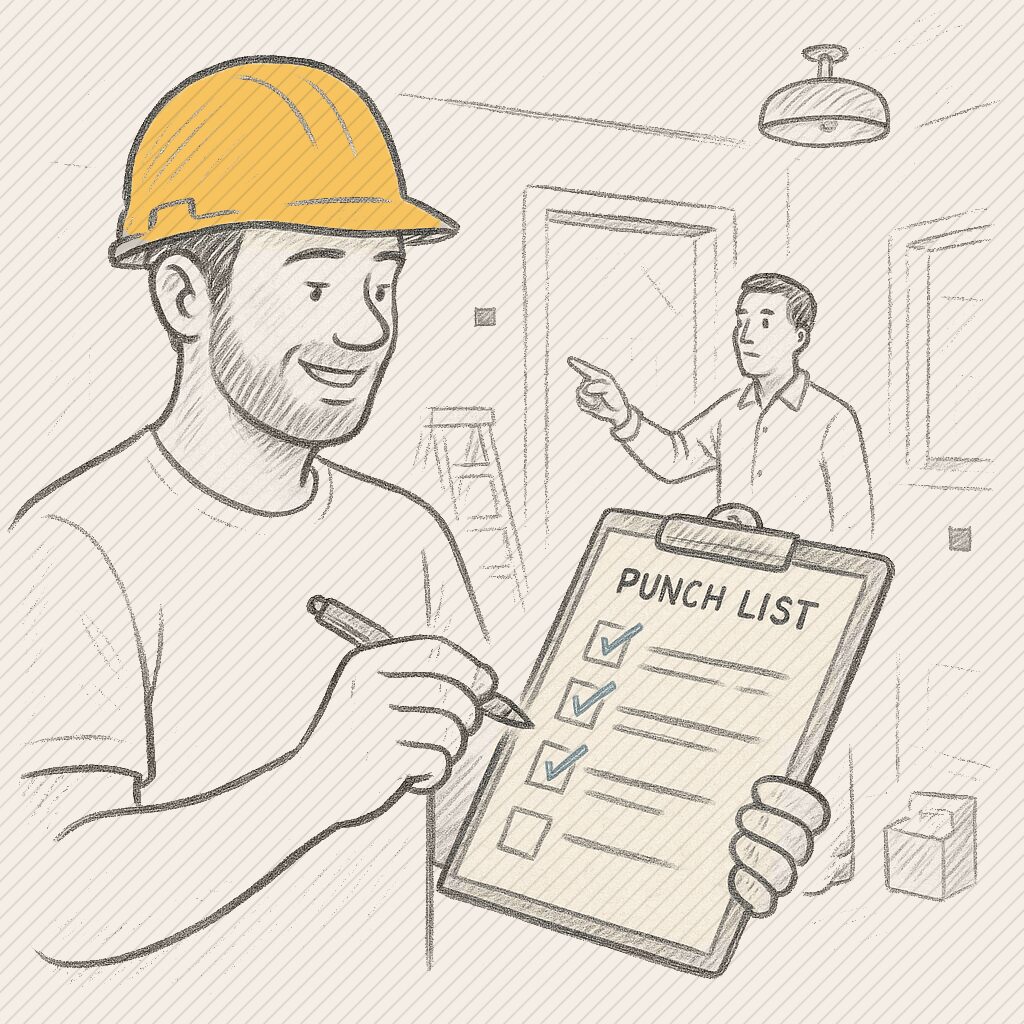It’s no secret that 2025 has been a rough year for small business owners—especially in the construction world. But if you’re a Florida contractor, you’ve got another storm to weather: immigration enforcement is heating up fast. ICE raids are no longer a big-city problem or something that only affects large corporations. They’re happening everywhere—from repair shops in Newark to job sites in Ocala. And if your hiring paperwork isn’t in order, the penalties can hit hard.
So how do you protect your business without turning into a full-time compliance officer? Here’s what Florida contractors need to know.
First, Get Your I‑9s Right—Every Time
The foundation of any compliant hiring process is Form I‑9. It’s simple in theory: every new employee fills out Section 1 by their first day, and you, the employer, complete Section 2 within three business days. But as with most government forms, the devil’s in the details.
As of June 30, 2025, there’s only one valid version of the I‑9: the edition dated 01/20/2025. If you’re still using an older version, your business is already out of compliance. Mistakes—like missing signatures or wrong dates—can cost you up to $2,861 per form. And if ICE determines you knowingly hired an unauthorized worker? Fines can exceed $28,000 per person.
Keep these forms on file for at least three years after the date of hire, or one year after termination—whichever is later. And keep them somewhere you can grab quickly if ICE ever comes knocking. You don’t want to be rifling through personnel files when agents are at the front door.
E‑Verify Is Now Mandatory for Many Florida Employers
A lot of contractors still think E‑Verify is optional. Not anymore.
Thanks to Florida’s SB 1718, any private employer with 25 or more employees in Florida is required to use E‑Verify for all new hires. This law went into effect in July 2023, but the real bite didn’t come until enforcement began in July 2024. Now, the penalties are real—and they’re steep. Get caught failing to use E‑Verify three times in two years and you could face daily fines and even a suspension of your business license.
The system is free, takes about 30 minutes to set up, and gives you a strong “good faith” defense if ICE ever audits your business. Once you’re enrolled, you’ll have to submit each new hire’s info within three business days of their start date. You also need to keep E‑Verify records for three years and certify your compliance each year on your Florida re-employment tax return.
Expect More Audits, More Raids, and More Risk
Even if you’ve done everything right, an ICE visit can still be disruptive. Enforcement efforts are up nationwide, and Florida contractors are on the radar. A raid can shut down your site, detain workers, and send shockwaves through your team—even if no one ends up being arrested.
That’s why every business should have a one-page ICE response plan posted somewhere accessible. It doesn’t need to be fancy—just a document that says who the point of contact is, where your I‑9s are stored, and who to call for legal help. And here’s something a lot of people don’t know: an ICE administrative warrant (like Form I‑200 or I‑205) does not give agents the right to enter private areas of your business. Only a judicial search warrant, signed by a judge, allows that kind of access.
If agents show up, don’t panic—but don’t obstruct. Don’t hide workers, don’t destroy documents, and don’t lie. Just call your attorney, observe everything you can, and document the encounter. If state law allows, you can even take video.
Support Your Team Without Breaking the Law
The fear of enforcement can be just as damaging as the fines. If your workers are scared, you’ll start seeing no-shows, turnover, and productivity drops. One of the best things you can do is offer a brief “Know Your Rights” training—ideally with an immigration attorney who can walk employees through what to expect if they’re ever questioned. There are also free bilingual flyers you can post alongside your required labor law posters (check the National Immigration Law Center for resources).
Just be careful not to make promises you can’t keep. Saying things like “We’ll get you a visa” or “You don’t have to worry about anything” might sound reassuring, but they can backfire fast. Be transparent, be honest, and support your people within the boundaries of the law.
Watch for Changes Coming This Year
Florida lawmakers are already looking at expanding the E‑Verify mandate even further. New bills could lower the threshold to include employers with fewer than 25 workers—and even apply the requirements to independent contractors. If those laws pass, they’ll likely take effect by July 1, 2025.
Now’s the time to get ahead of the curve. Don’t wait until your license is at risk or your job site is under scrutiny.
Final Word
Compliance may not be glamorous—but it’s a whole lot better than paying fines, losing your license, or watching your project grind to a halt. Form I‑9s and E‑Verify aren’t optional for Florida contractors anymore. They’re business-critical.
About the Author & Disclaimer
This article was written by John C. Martin, Esq., a Florida construction law attorney and the author behind Hammer & Law.
Important Disclaimer: The content on Hammer & Law is provided for general informational purposes only and does not constitute legal advice. It should not be relied upon as a substitute for professional legal counsel. Reading this article, or any content on this site, does not create an attorney-client relationship. Laws and regulations change frequently, and the information may not be current or applicable to your specific situation. Always consult with a qualified Florida construction law attorney for advice tailored to your individual circumstances.



